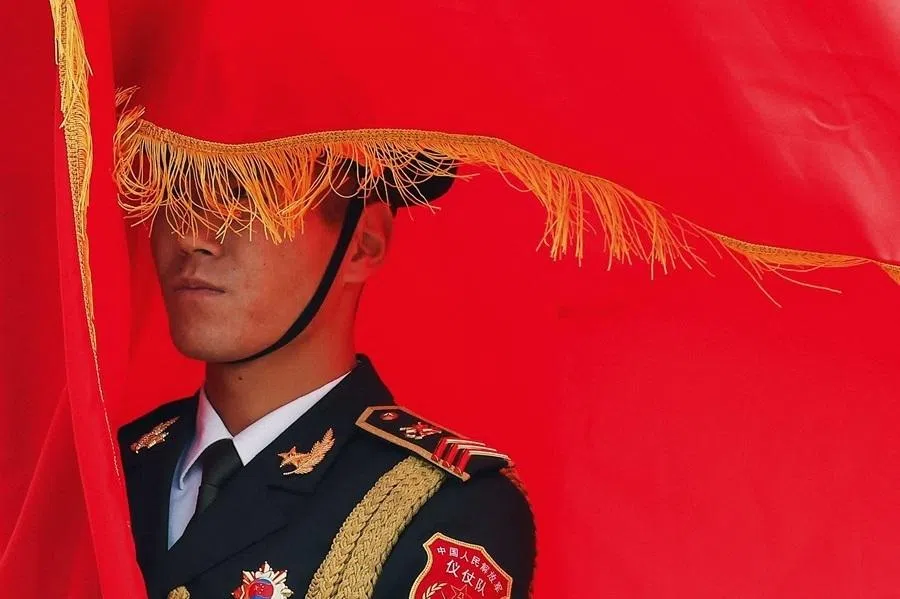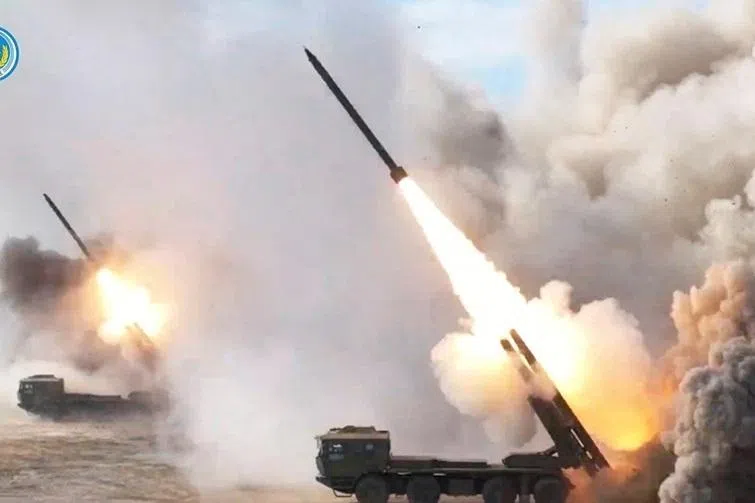Chan Heng Chee: Amid chaos, our national interest is the only constant
The future world will neither be unipolar nor bipolar but multipolar; the structure will be fragmented, and the heights of the poles will be asymmetrical. Amid the tensions and pitfalls, how does Singapore cope in an increasingly complex world? Lianhe Zaobao associate editor Han Yong Hong speaks with Singapore's ambassador-at-large and former ambassador to the US Chan Heng Chee about the challenges the world faces.
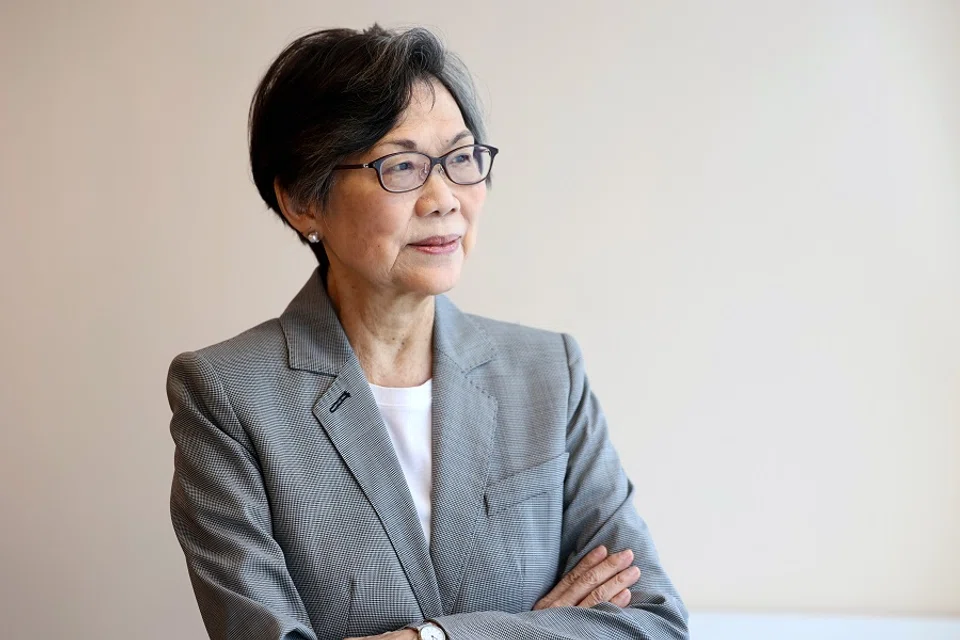
"2024 will be an unpredictable and volatile year."
From the outset, Singapore's ambassador-at-large and former ambassador to the US Chan Heng Chee pinpointed the key challenge faced by the world. Chan used the term "unpredictable" which characterises real consequences, rather than "uncertain", which has been used so often since the Covid-19 outbreak to denote subjective feelings.
She paused for a moment, and repeated, "Unpredictable."
In late January, Chan chaired a panel at an Asia Society conference in the US with the theme "A Decade of Living Dangerously". Looking ahead to 2024, many issues require international attention, but Chan mainly focused on major events affecting Asia, namely the two wars in Europe and the Middle East, China-US relations and the Taiwan Strait situation.
Chan said, "The wars will impact Asia in several ways. Oil prices could go up, and cost of living, inflation and shipping would be affected immensely."
Wars will drag on
The Israel-Hamas conflict has already spilled over to several countries, including Yemen, Lebanon, Syria, Iraq, Iran and even Pakistan, and runs the risk of further expansion. The Houthis have been attacking Red Sea ships since last November, leading to a 40% drop in commercial traffic passing through the Suez Canal, an important international shipping route. Now, merchants are either cancelling their orders or forced to bear higher shipping costs.
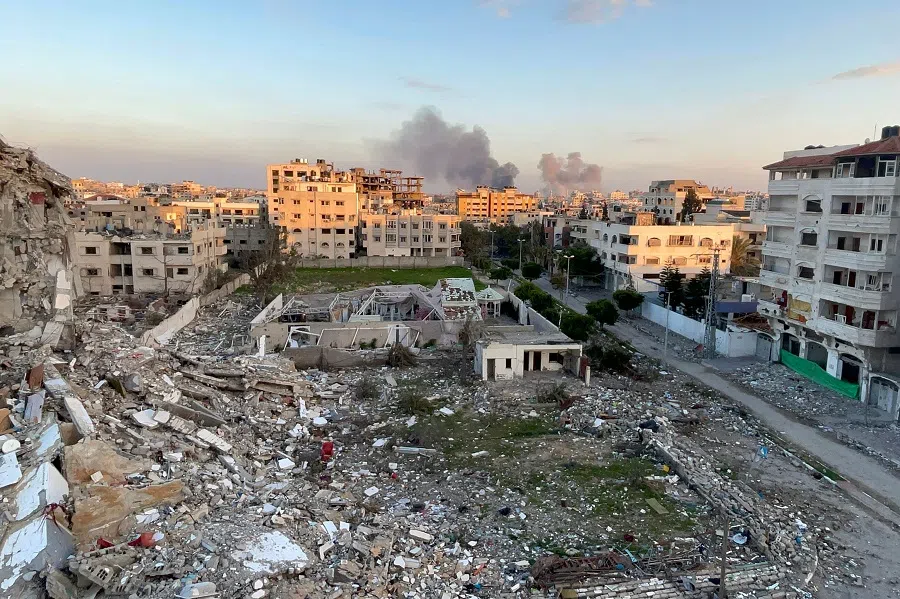
Chan pointed out that as a shipping nation, the impact of the Red Sea crisis on Singapore is evident. Next, the conflict in the Middle East may trigger the rise of terrorist activities in other parts of the world. Also, three of the ten ASEAN countries are predominantly Muslim, and many other countries also have Muslim minority groups. Many of them want to see an immediate ceasefire in Gaza, and governments will need to consider how the populace would respond.
"It is a question of whether Russia or Ukraine will wear out first, then there will be a negotiation. Each will want to do it at a time most favourable to its position." - Ambassador Chan
As for the war in Ukraine, Chan described that it has unfortunately turned into a war of attrition, and some Western countries are showing aid fatigue towards Ukraine. Although the Nordic and Baltic countries, as well as Ukraine's neighbours want to keep up the strong support for the war as they see that the future of European security will be determined by how this war is conducted and ends, other countries in Europe are less supportive due to their own domestic concerns.
She said, "It is a question of whether Russia or Ukraine will wear out first, then there will be a negotiation. Each will want to do it at a time most favourable to its position."
For Ukraine, which is the weaker of the two parties and highly reliant on external support, the price of war will be higher. There is very clear awareness that when war opens on different fronts, the US's attention will be taken away and Ukraine can feel this drastically once the Israel-Hamas war started.

Where is the end? Chan refrained from predicting when the Russia-Ukraine war will end, but said, "In fact, I'm not sure you have short wars anymore. A lot of wars are going to be long wars, longish wars."
New momentum in Taiwan?
At the time of the interview, the Taiwan presidential elections had just concluded and the self-professed "pragmatic worker for Taiwan independence" William Lai was elected, and various parties began worrying about the rapid escalation of cross-strait tensions and even military conflict. But Chan instead noticed that, compared with the past, both sides of the Taiwan Strait had a more measured response before and after the Taiwan elections this time.
She observed that before the countdown to 2024, mainland Chinese state media aired a clip of celebrities from both sides of the Taiwan Strait singing together the Taiwanese pop song Tomorrow will be Better. In the video, Taiwanese singers talked about "people on both sides of the Taiwan Strait being one family" (两岸一家亲), while mainland Chinese singers highlighted the unique features of their respective hometowns, such as the sea in Qingdao and Sichuan's hotpots.
Chan said, "That's a softer approach than just shooting missiles across."
"I think China understands and learned from the last elections. If it is too heavy in its approach, the pressure is too strong. The Taiwanese will just react the other way." she added.
Regarding the South Pacific island nation of Nauru's announcement that it would sever diplomatic ties with Taiwan less than 48 hours after Taiwan's election, Chan believes that Taiwan will continue to face similar pressures from the mainland, but Beijing's future actions remain to be seen.
Chan thinks that Lai's mention of the "constitutional order of the Republic of China" is significant...
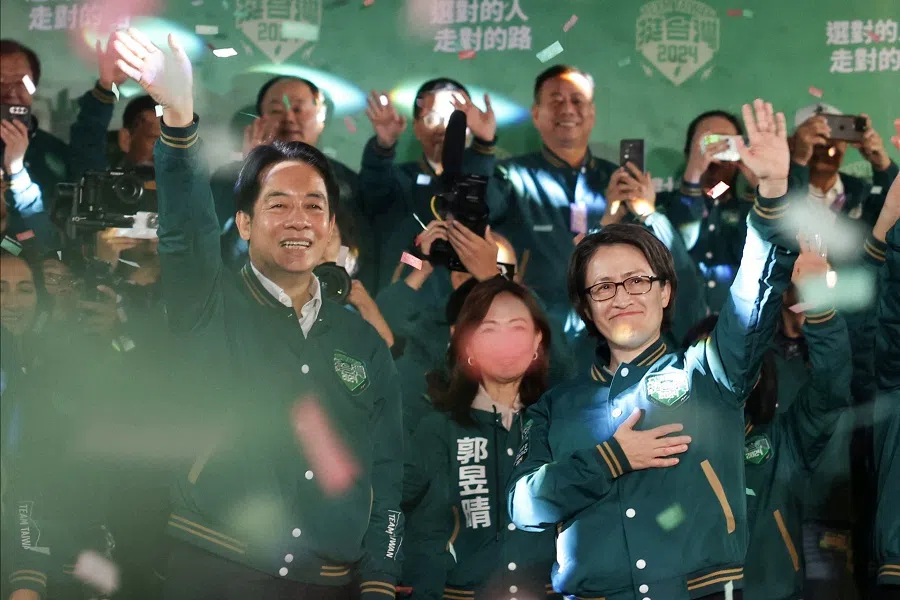
Numerous Western media also claimed that Beijing is upset with the outcome of the Taiwan elections, Chan disagreed and believes that the mainland must have already collected opinion polls and intelligence. "Would they be surprised by the results? No, I doubt it," she surmised.
Although Lai from the Democratic Progressive Party (DPP) won the elections, he only received 40% of the votes and also lost the legislative majority. Chan predicts that a new dynamic is forming in Taiwan's political arena. She also observed that Lai has made it clear in a press conference after his victory that it is his "important responsibility, as president, to maintain peace and stability in the Taiwan Strait". He pledged to "act in accordance with the constitutional order of the Republic of China, in a manner that is balanced and that maintains the cross-strait status quo".
Chan thinks that Lai's mention of the "constitutional order of the Republic of China" is significant, especially since the on-site English translation initially mistranslated it as "democratic and free constitutional order", and subsequently corrected to emphasise "Republic of China", which further shows that the DPP or Lai's team want this position to be noticed.
As to what will happen in the coming months, Chan thinks that we must wait and see what the run up to the inauguration would be like as well as Lai's inauguration speech on 20 May.
"... there's an attitude about technology: it is 'ours'... And technology is seen to be the decider... the most advanced technology will decide who wins the economic game and the defence military game." - Ambassador Chan
US will not play the Taiwan card
Since 2021, Taiwan has been described as the "most dangerous place on earth". Some mainland Chinese observers have also speculated that the US is not only using Taiwan to contain the mainland, but even adopting the long-term strategy of "inducing war" in an attempt to induce a Taiwan Strait conflict to hinder the mainland's rise.
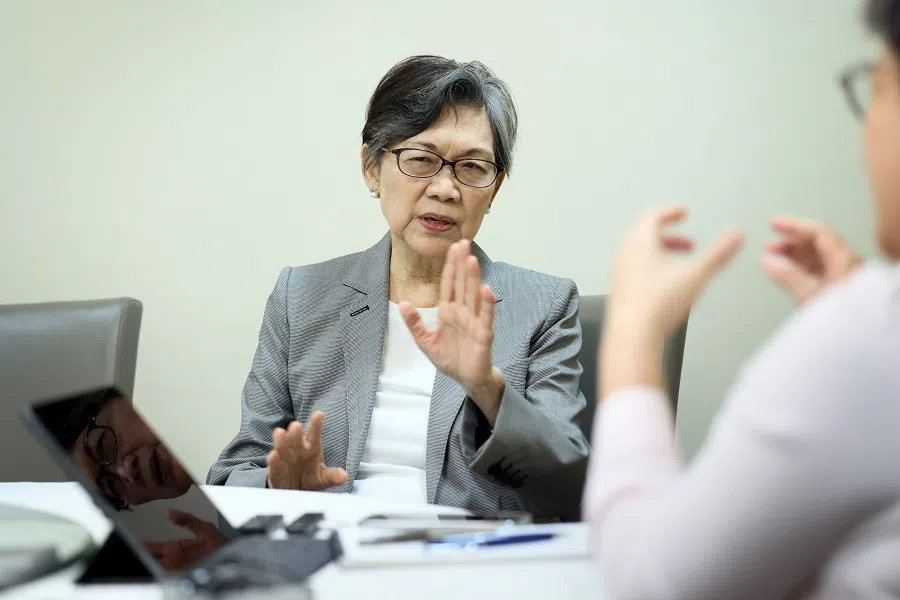
When I asked her about this speculation, Chan, who was stationed in the US for 16 years and has a deep understanding of the country, responded that if the US wants to slow down or block China's rise, it will use the technology field and not Taiwan.
"The US wants to control the export of really high-end and sophisticated critical technologies to China. They say, 'It is ours. Why are we so foolish as to just sell it to everybody? Because in the end it comes back to bite our hands.' So there's an attitude about technology: it is 'ours'... And technology is seen to be the decider... the most advanced technology will decide who wins the economic game and the defence military game," she explained.
Chan shared that after recently reading Chip War: The Fight for the World's Most Critical Technology, she was reminded that even Japan, an ally of the US, suffered the same treatment - additional tariffs, export controls, market bans and technology embargoes - when the US saw it as its main competitor back then. It is just that sanctions against China are much broader, and there are more high-tech products today. "The US views competition in a way that defines competition as security. That's a problem for China," she said.
In comparison, creating instability in the Taiwan Strait is not in the interest of the US. "What are they going to do? Is the US going to send troops to Taiwan?" she asked.
"Americans are not looking for another war, and they don't want to see American blood spilt." - Ambassador Chan
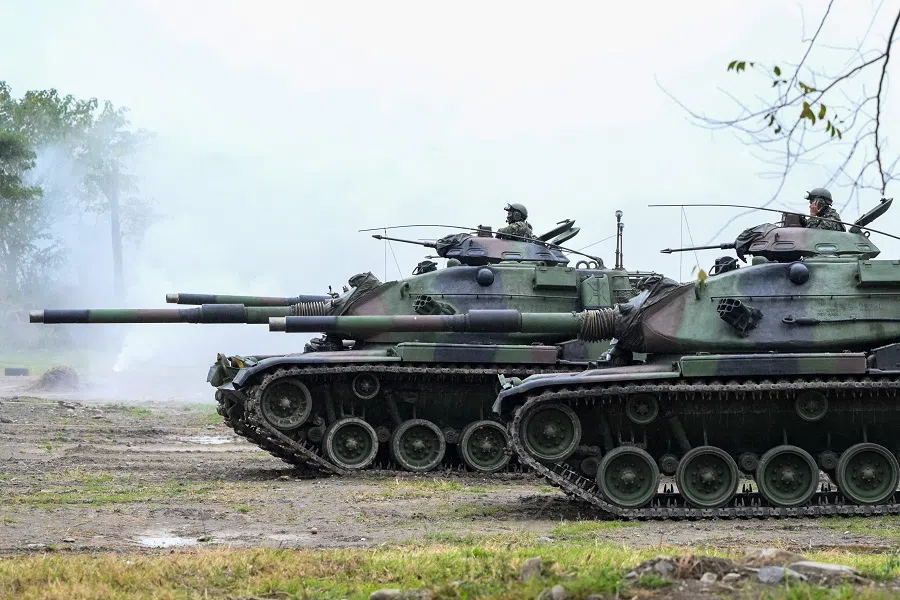
Although US President Joe Biden has repeatedly made gaffes in saying that he would send forces to defend Taiwan, Chan thinks that the US has been cautiously avoiding sending troops to Ukraine and the Middle East, only providing weapons, drones, missiles and so on.
"Americans are not looking for another war, and they don't want to see American blood spilt," she stated.
China-US relations in 2024: tactical stabilisation
Although the global situation in 2024 is highly unpredictable, Chinese and US leaders are willing to stabilise China-US relations.
Chan described China-US relations as "tactically stable" following the meeting between the Chinese and US heads of state in San Francisco last November. Biden, who needs to run for re-election, does not want China-US relations to be unstable; meanwhile, China must focus on solving its domestic economic problems.
However, Chan also warned that the Biden administration will not lift its technology export restrictions on China to avoid being seen as soft towards it, and more Chinese companies and individuals can be expected to be included in the US's Entity List.
At the time of the interview, former US President Donald Trump had secured successive victories in the Republican primaries and seemed to be inching closer to his goal of returning to the White House.
"The rivalry between China and the US will continue to deepen over a long period of time, and Trump 2.0 will not change this." - Ambassador Chan
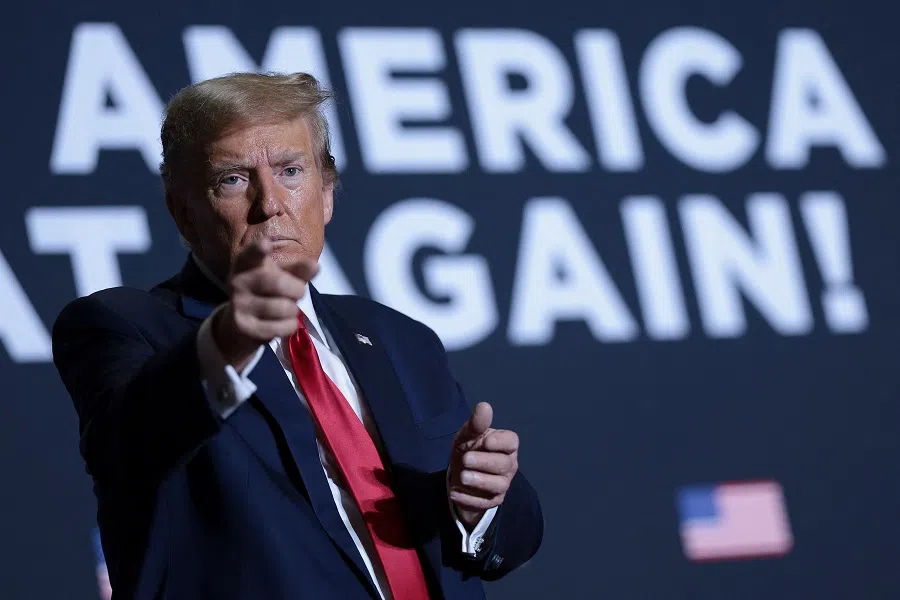
When this reporter asked Chan to assess the possibility of "Trump 2.0", she answered indirectly, "Some Democrats cannot imagine that Trump can win, and many Republicans are confident that Trump will win. I would say that he has a chance, and I don't rule out a Trump victory at all. But it's too early now to tell. Seasoned observers of American elections will tell you that you should only pay attention to the polls after September."
But if "Trump 2.0" were to take place, what dramatic changes would we see in US policy? Chan cautiously answered, "Trump is not very predictable.
"He has said that he will impose a 10% tariff on all countries: China, Japan, and those in the EU, ASEAN and Latin America. This may hasten a global economic recession. But some people have another expectation of him, which is that he would try to bring an end to the Russia-Ukraine war. Trump is a good friend of Russian President Vladimir Putin, and I believe that Putin will prefer to negotiate with Ukraine when Trump is in office as the conditions will be more favourable to Russia. It will have an impact on the Ukraine war. In addition, Trump is very concerned about the trade imbalance between the US and China, and would force the latter to make concessions.
"Some people think that Trump sees China as an economic challenge. But both the Democrats and Republicans see China as a strategic challenge, so even if Trump doesn't see it that way, his appointed officials, secretary of defence, national security adviser and secretary of state will all have influence. Although the president would have the last say in the end, they will still have an impact. The rivalry between China and the US will continue to deepen over a long period of time, and Trump 2.0 will not change this."
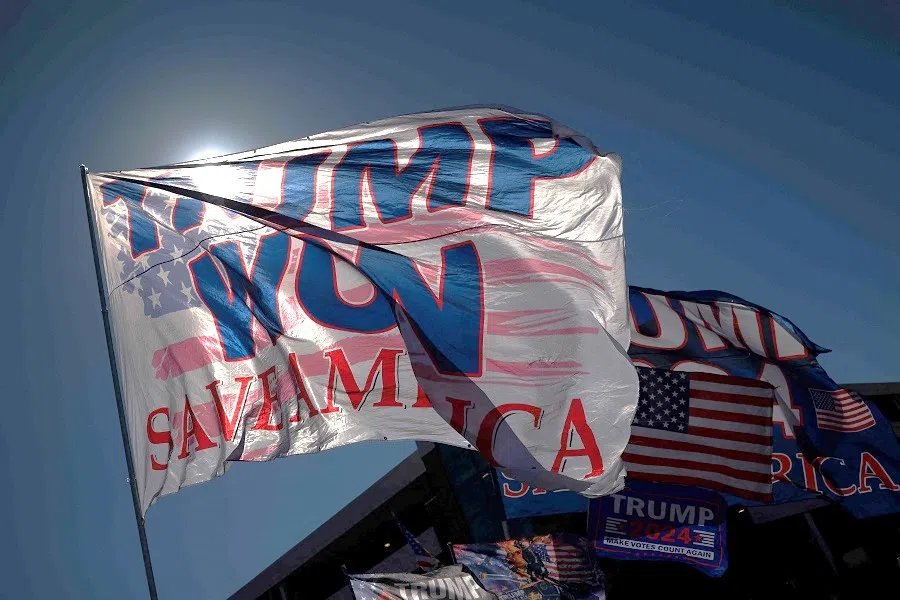
If Trump takes office, he could focus more on domestic issues in the US. He declared last year that he would reform the American establishment and tackle the "deep state". Chan reiterated, "We cannot predict what Trump will do."
Chan thinks that the future world will neither be unipolar nor bipolar but multipolar; the structure will be fragmented, and the heights of the poles will be asymmetrical.
World headed towards asymmetric multipolarity
From being an outspoken scholar in her youth to Singapore's permanent representative to the United Nations and ambassador to the US, and her current role as Singapore's ambassador-at-large, a university professor and global co-chair of Asia Society, to my understanding, Chan still visits her office every day, immaculately dressed, her diligent and hardworking demeanour unchanging over the years.
Amid geopolitical tremors, the current situation is reminiscent of the ancient Chinese saying: "The world is in chaos (天下大乱)." How should we understand the future evolution of the world?
Chan thinks that the future world will neither be unipolar nor bipolar but multipolar; the structure will be fragmented, and the heights of the poles will be asymmetrical. The US will still be the tallest pole because of its military strength; its economy is still very strong and its alliances are spreading. Meanwhile, it is leading in the field of technology and still attracting talents.
But the US is not the only pole; China is another pole, India is catching up, and the EU wants to be a pole to be considered despite facing economic difficulties. Chan said, "Every other country wants to have agency and a say in matters. Look at the Middle East - although they are small- and medium-sized countries, they have effective and loud voices and do make an impact."
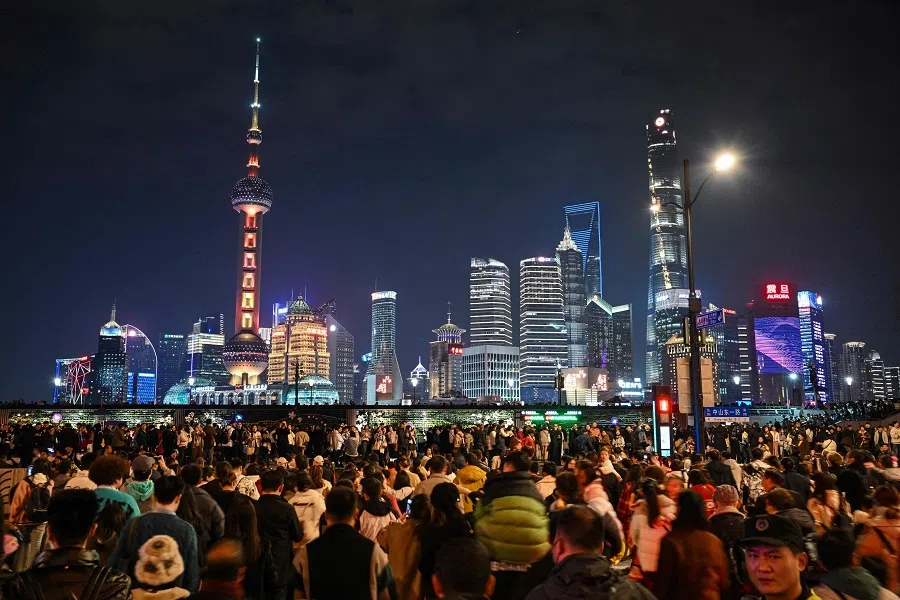
Chan reminds us that Saudi Arabia and Qatar are playing the role of mediators and exercising effective diplomacy; BRICS countries are rising; and India is striving to be the leader of the global south. Although China wants to do the same, it is distracted by the domestic economy, cross-strait relations and China-US relations.
"I would say that the global south is not an organised school. They all have different objectives, goals, and they do not want to have just a single American perspective imposed on them. But I think everyone also realises that the US is still the highest pole," Chan noted.
How should Singapore cope with an increasingly complex world? Chan did not give any "advice" but emphasised that there is no one-size-fits-all answer.
"I am often asked this question, 'What should we do?' Look at each situation and ask, 'What are Singapore's interests in each case? How should we deal with it and how should we respond?' Our national interest is the only constant."
Chan Heng Chee's book recommendations:
Chip War: The Fight for the World's Most Critical Technology by Chris Miller
Out of the Gobi: My Story of China and America by Weijian Shan
The Avoidable War: The Dangers of a Catastrophic Conflict between the US and Xi Jinping's China by Kevin Rudd
The Back Channel: A Memoir of American Diplomacy and the Case for Its Renewal by William J. Burns
The Age of AI: And Our Human Future by Henry Kissinger, Eric Schmidt and Daniel Huttenlocher
This article was first published in Lianhe Zaobao as "陈庆珠谈国际地缘政治:世局不可预测 唯谋自身恒定".
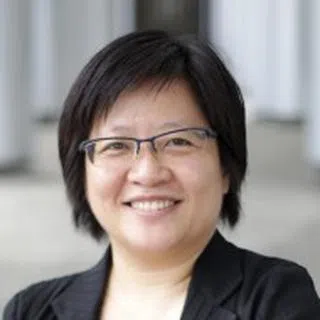


![[Big read] When the Arctic opens, what happens to Singapore?](https://cassette.sphdigital.com.sg/image/thinkchina/da65edebca34645c711c55e83e9877109b3c53847ebb1305573974651df1d13a)
